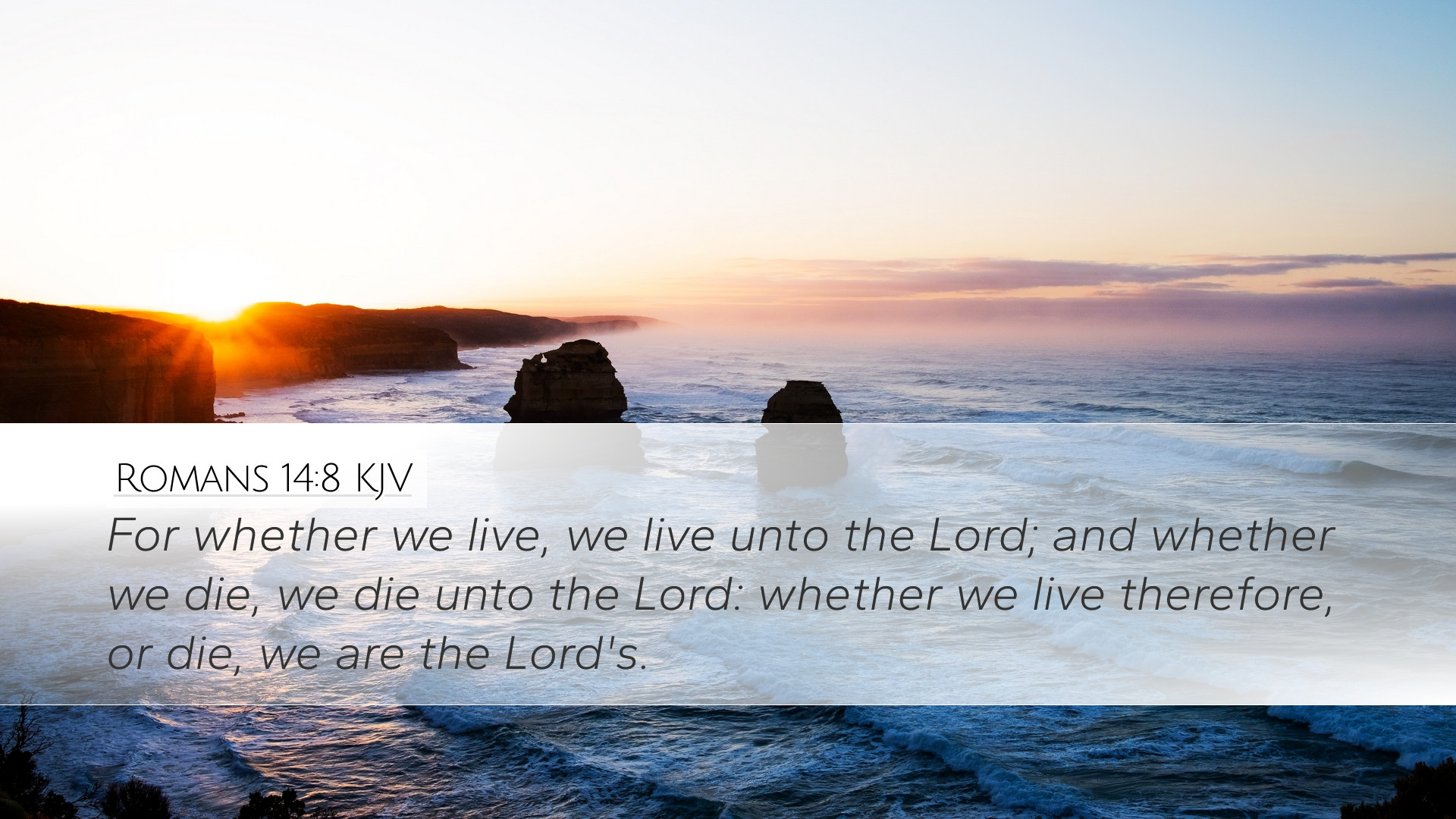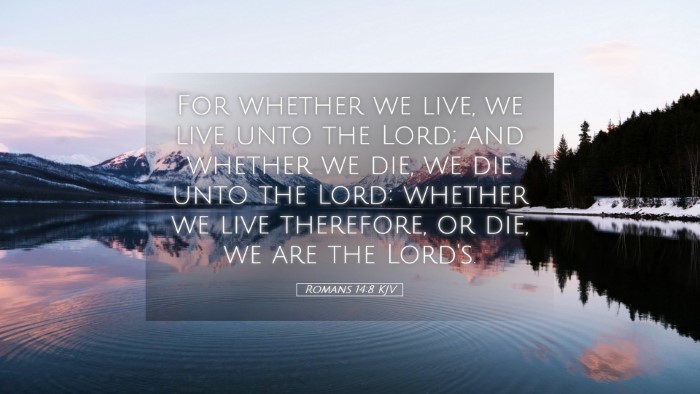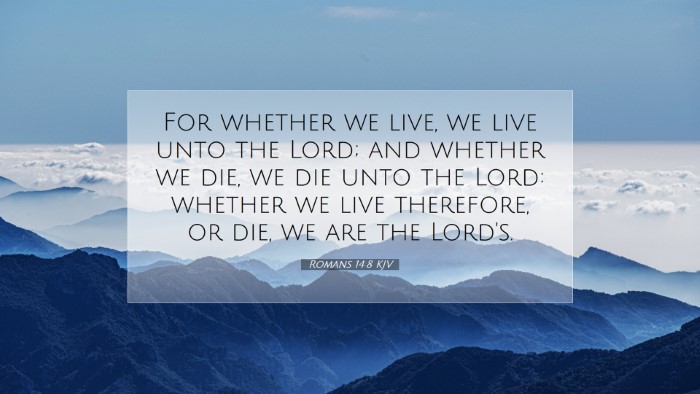Old Testament
Genesis Exodus Leviticus Numbers Deuteronomy Joshua Judges Ruth 1 Samuel 2 Samuel 1 Kings 2 Kings 1 Chronicles 2 Chronicles Ezra Nehemiah Esther Job Psalms Proverbs Ecclesiastes Song of Solomon Isaiah Jeremiah Lamentations Ezekiel Daniel Hosea Joel Amos Obadiah Jonah Micah Nahum Habakkuk Zephaniah Haggai Zechariah MalachiRomans 14:8
Romans 14:8 KJV
For whether we live, we live unto the Lord; and whether we die, we die unto the Lord: whether we live therefore, or die, we are the Lord's.
Romans 14:8 Bible Commentary
Commentary on Romans 14:8
This verse encapsulates a profound theological principle that speaks to the nature of life and death in relation to Christ. Romans 14:8 states:
"For if we live, we live to the Lord, and if we die, we die to the Lord. Therefore, whether we live or die, we are the Lord's."
Contextual Overview
The Apostle Paul, in this epistle, addresses complex issues regarding Christian conduct and the relationship with one another in the body of Christ. Chapters 14 and 15 elaborate on matters of personal conviction and the exercise of Christian freedom in areas that are not definitive in Scripture. This verse serves as a conclusion to a segment that stresses the Lordship of Christ over life and death.
Theological Insights
-
Life as Service to the Lord:
Paul asserts that our living is not merely for ourselves but is ultimately directed towards the glory of God. Matthew Henry emphasizes that true life for a Christian is understood through the lens of servitude to Christ.
-
Death as Union with Christ:
When Paul discusses dying, it is vital to recognize that he conveys the concept of dying not as an end but as a transition into deeper communion with Christ. Albert Barnes elucidates that this perspective reshapes the believer’s understanding of death, instilling hope and purpose.
-
Lordship of Christ:
The phrase "we are the Lord's" encapsulates the quintessential Christian identity. Adam Clarke comments on how this identity influences our conduct and engagement with others, particularly regarding disputable matters of faith.
Detailed Analysis
The Life of the Believer
The very fabric of Christian existence is bound to Christ. A believer is called to live a life that reflects the teachings and glory of God. This means that every action, thought, and motivation should align with being “to the Lord.”
Matthew Henry states that living for Christ entails a life of holiness and obedience, encompassing a range of daily actions. Such a life is marked by love, service, and sacrifice, considering all endeavors as directed towards the building of God’s kingdom.
The Dying of the Believer
To die in the Lord fosters a view that death is not something to dread. Paul reassures believers that their transition from life into death carries with it the same Lordship of Christ, sustaining them through both states. As noted by Barnes, this alignment elevates the believer's perspective on mortality, seeing it as merely a passage into the eternal presence of God.
Ultimate Ownership
The affirmation that “we are the Lord’s” encapsulates the total claim that God has over us. Adam Clarke highlights the implications of this claim in the context of daily decisions believers face, particularly in matters of conscience and unity among the body of Christ. This recognition motivates believers to be mindful of how their actions affect the body of Christ.
Practical Applications
-
Courage in Life and Death:
Believers are encouraged to face life with confidence, knowing their lives—and their deaths—are enveloped in divine purpose.
-
Community in Disputable Matters:
In discussions on areas where Scripture may be silent, this principle advises humility, charity, and respect for differing views in the body of Christ.
-
Christ-Centered Living:
This text serves as a reminder that every aspect of life should be filtered through the question: “Is this in service to my Lord?”
Conclusion
Romans 14:8 serves as a poignant reminder of the total claim Jesus has over life and death for the believer. As both Matthew Henry and Albert Barnes elaborate, the believer exists to glorify God, whether in life or in death. Embracing this truth can transform the way believers interact with one another and approach the complexities of faith in community.


